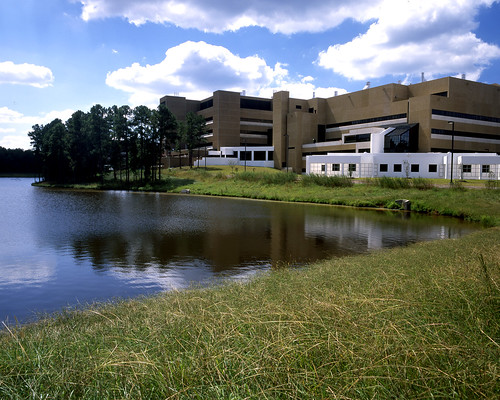
Project Info
- Construction Date: October 2020
- Location: Durham, NC
- Category: Federal
Project Details
DURHAM, North Carolina – In October of 2020, Thermal Science Technologies (TST) successfully completed a project that involved thermal restoration of over 12,000 LF of buried high-temperature hot water supply and return piping at the National Institute of Environmental Health Sciences (NIEHS) campus in Research Triangle Park, NC. TST also designed, fabricated and installed custom-made Removable Insulation Covers (RIC) for 24 300lb. HTHW gate valves located in 4 different valve pits on campus.
More Project Details
Most of the distribution piping network at NIEHS was installed over 4 decades ago and the original insulation within the buried piping system had deteriorated over time. ConduFill® was an excellent solution for the facility as it was able to revitalize the efficiency of the HTHW piping on campus. A rigid, polyisocyanurate foam insulation was strategically injected into the annular space between the carrier pipe and the outer steel casing of the piping system while it remained in service.
The RICs that were installed on this project were fabricated with a hydrophobic Pyrogel® XT-E core insulation and a 13.5 oz. Teflon®-coated inner/outer jacketing. Pyrogel® XT-E is a high-temperature silica aerogel insulation blanket that is ideal for manholes or vaults that are prone to flooding. The core insulation material is 100% hydrophobic and cannot absorb water that so often destroys other conventional insulations on the market today.
TST worked with the Facilities Management Branch at the NIEHS RTP site for several years to develop this much-needed thermal restoration project and they were able to fund the entire project through an existing Construction, Renovation, Design-Build MATOC program. Working with a local MATOC contractor as a prime contractor, we were able to prolong the life of the piping system and help the facility avoid what would have been a costly complete pipe replacement project.
TST began the project in June of 2020 during the COVID-19 pandemic and finished ahead of schedule in 5 months.

